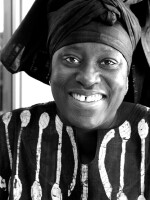FARAI CHIDEYA, host:
The southern African nation of Zimbabwe and its president, Robert Mugabe, continue to make political headlines. NPR's Ofeibea Quist-Arcton has been on the ground there for almost two weeks. We spoke to her earlier today from the capital city of Harare.
OFEIBEA QUIST-ARCTON: Well, it's been a busy few days here in Zimbabwe. The opposition is claiming that there has been more beatings, rounding up, and police assaults on their members. Last week, the headquarters of the Movement for Democratic Change, the main opposition party, was raided by policemen. We saw it with our own eyes. The whole place was trashed, with furniture upturned, doors bashed in with gun butts, and a number of opposition activists and workers taken away. And more alleged assaults by police on these people while they were in detention.
None of the activists who were detained in the raid were charged with attempted murder and illegal weapons possession. And for a few hours, the opposition leader, Morgan Tsvangirai, was arrested.
CHIDEYA: There have been a series of petrol bombings or gas bombings. Is this related to that charge?
QUIST-ARCTON: Well, that's what the government and the police are saying, that several of these people were arrested linked to this spate of petrol bombings around the country. And the main Herald newspaper, which is a government newspaper, the government mouthpiece, last week showed two police officers, women police officers, who'd been severely burned around their faces linked to these petrol bombs.
Now, the government continues to say that any violence happening in Zimbabwe has been stirred up by the opposition. The opposition says: No, this is a government police crackdown. The repression is coming from the authorities and it's got to stop.
CHIDEYA: How has the president, Robert Mugabe, faired politically in the past few days and weeks?
QUIST-ARCTON: Well, he came back with a spring in his step from a regional southern African development community meeting in Tanzania. A lot of the media, the foreign media especially, had been saying that they expected him to get rapped over the knuckles, to be read to riot act by his regional counterparts and to be told that it's time at 83, sir, that you have served your nation. It's time for you to step down. That didn't happen. Regional presidents, in fact, seemed to support President Mugabe, and in fact called for the West to lift sanctions against Zimbabwe.
So as he left Tanzania, he clapped his hands and said excellent meeting.
CHIDEYA: Finally, isn't there some labor action, and how important is that?
QUIST-ARCTON: Well, it's important in that this Zimbabwe Congress of Trade Union, which is organizing the two-day stay away, has the support of the opposition?
And when you look to the economic situation in this country, it is in meltdown: inflation at 1700 percent, unemployment at 80 percent. The unions are calling for much higher salaries because the cost of living from the morning to the evening changes. Prices go up. There's no foreign currency. People's money in their pockets, if they have it, is devalued by the minute. The government says they're playing politics and that they should be ignored by Zimbabwean workers. We'll see what happens tomorrow, Tuesday and Wednesday. But it is important because of course it's another way of opposing the authorities here.
CHIDEYA: Ofeibea Quist-Arcton, thank you so much.
QUIST-ARCTON: Always a pleasure.
CHIDEYA: NPR's Ofeibea Quist-Arcton is in Harare, Zimbabwe.
(Soundbite of music)
CHIDEYA: Next on NEWS & NOTES, some black churches who reject homosexuality still join the fight against AIDS. And she gave rock and soul to spirituals, Sister Rosetta Tharpe, the subject of a new biography. Transcript provided by NPR, Copyright NPR.






